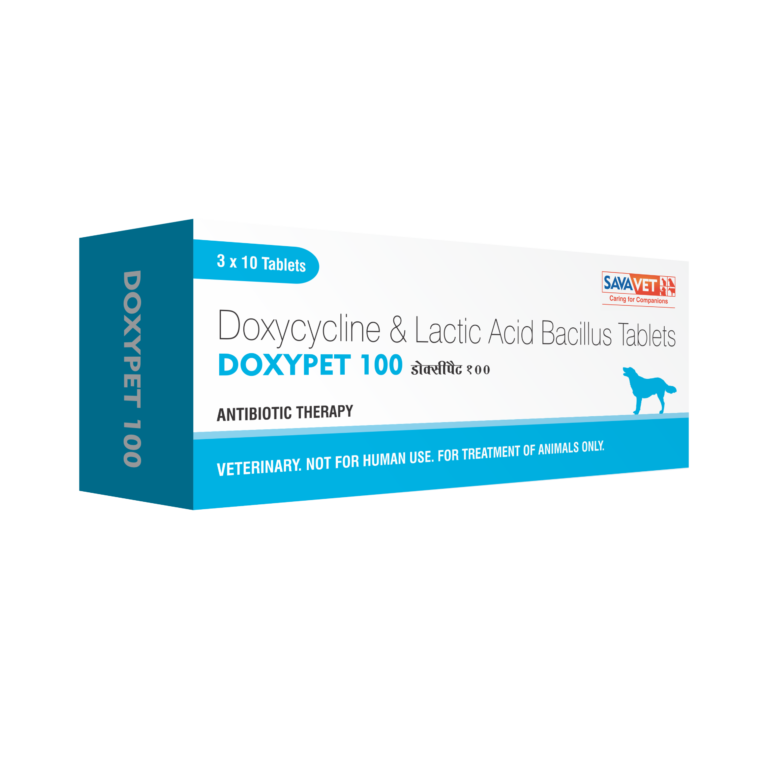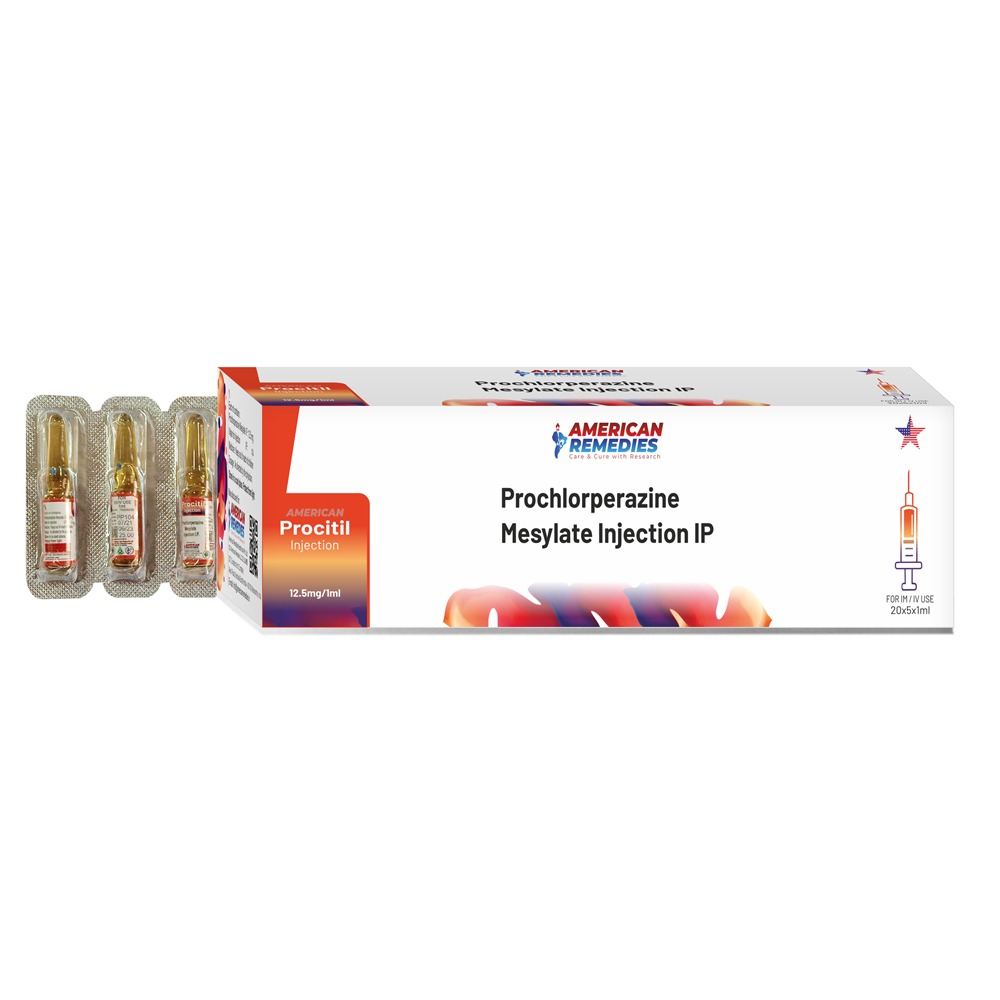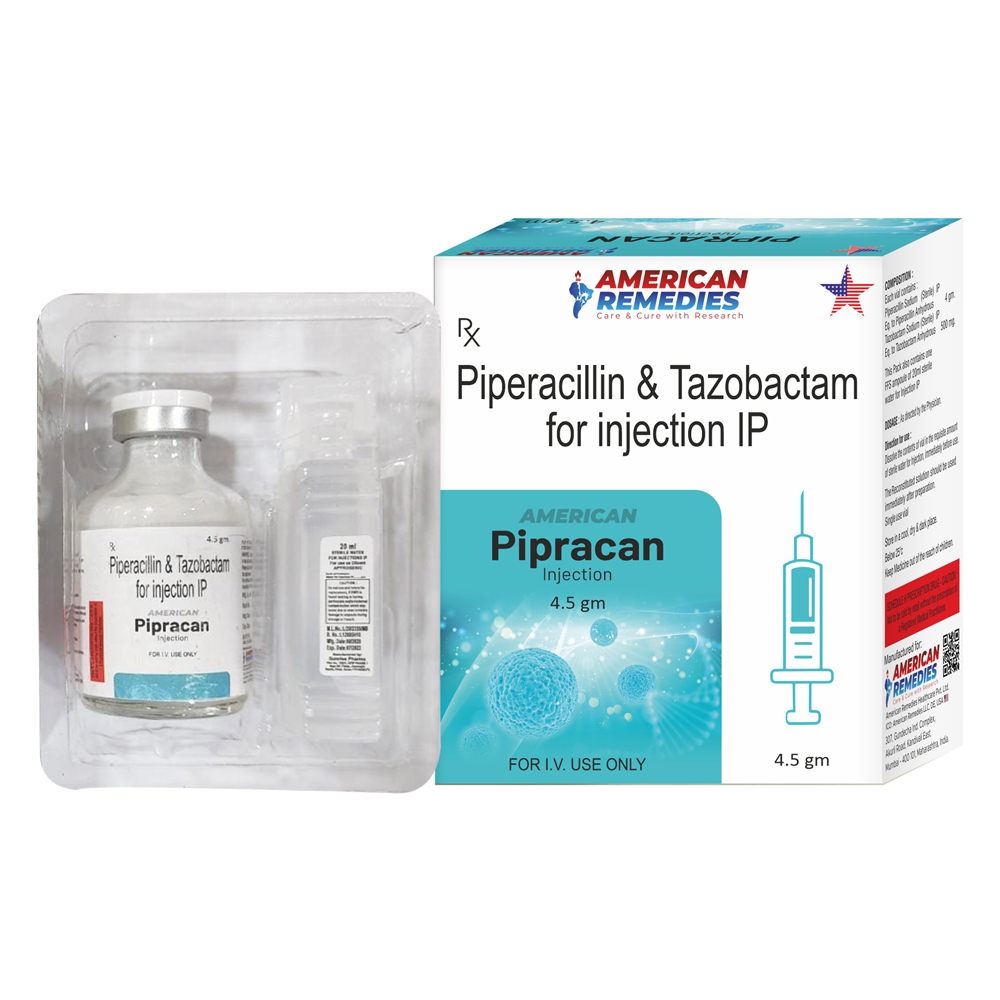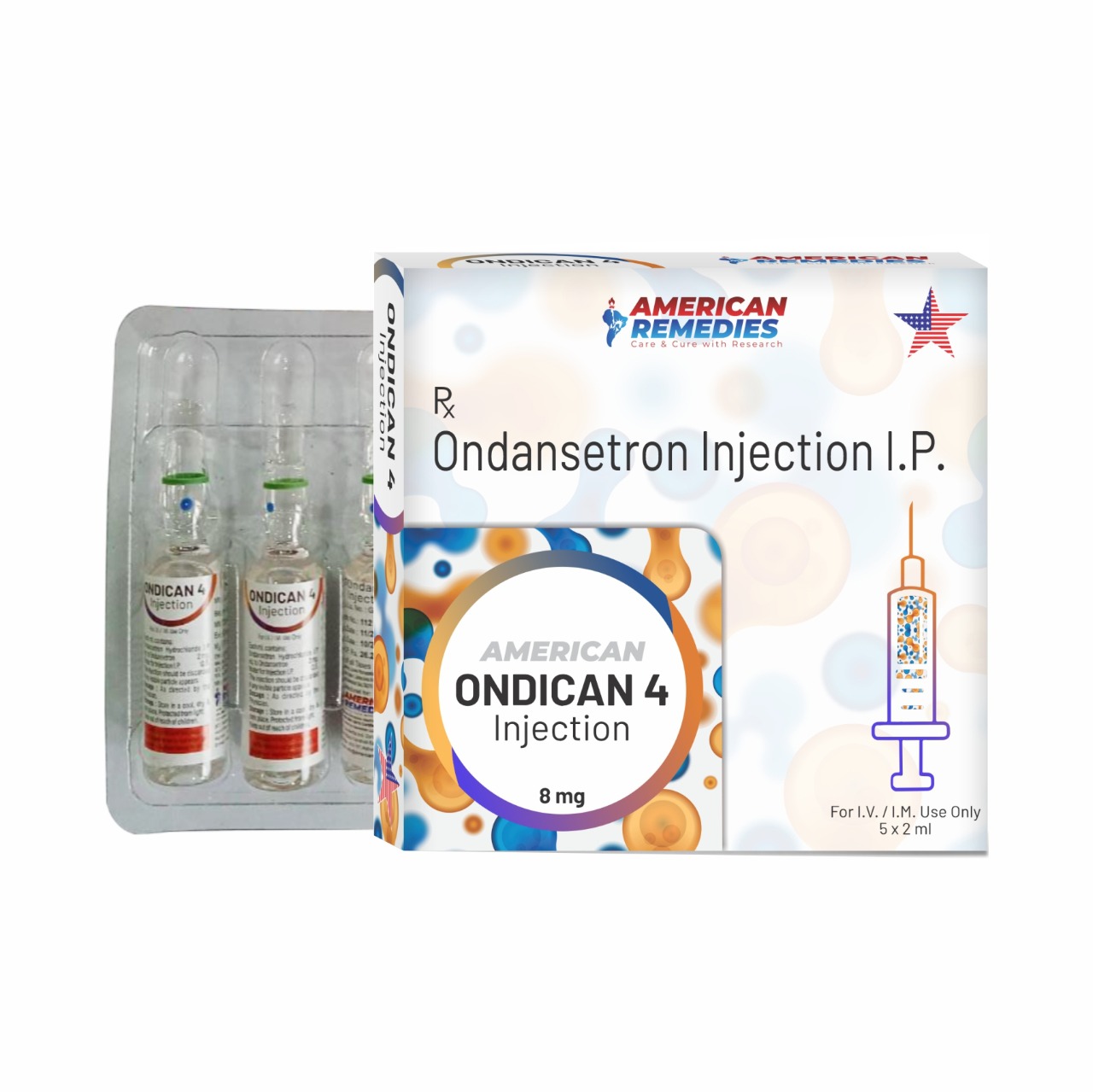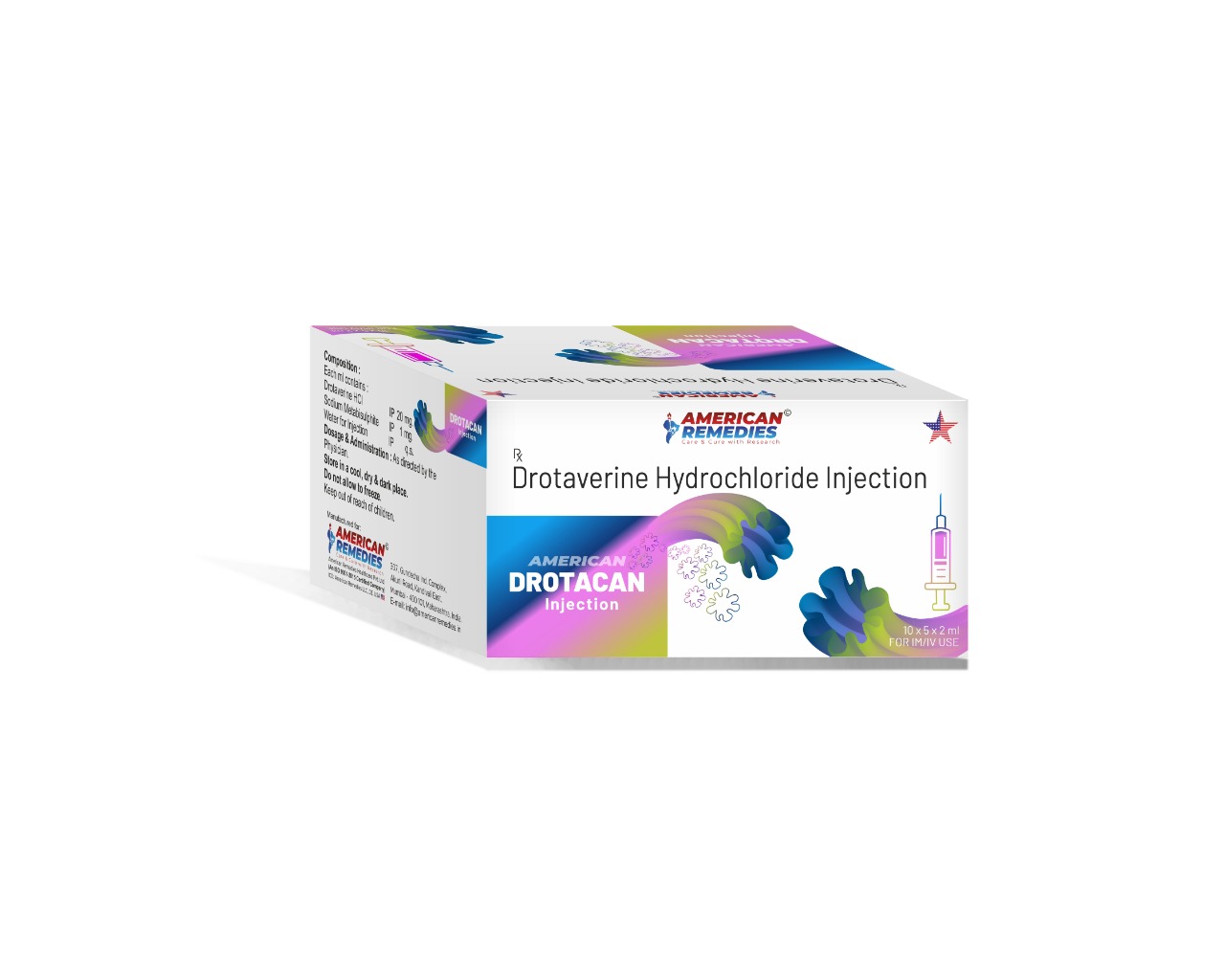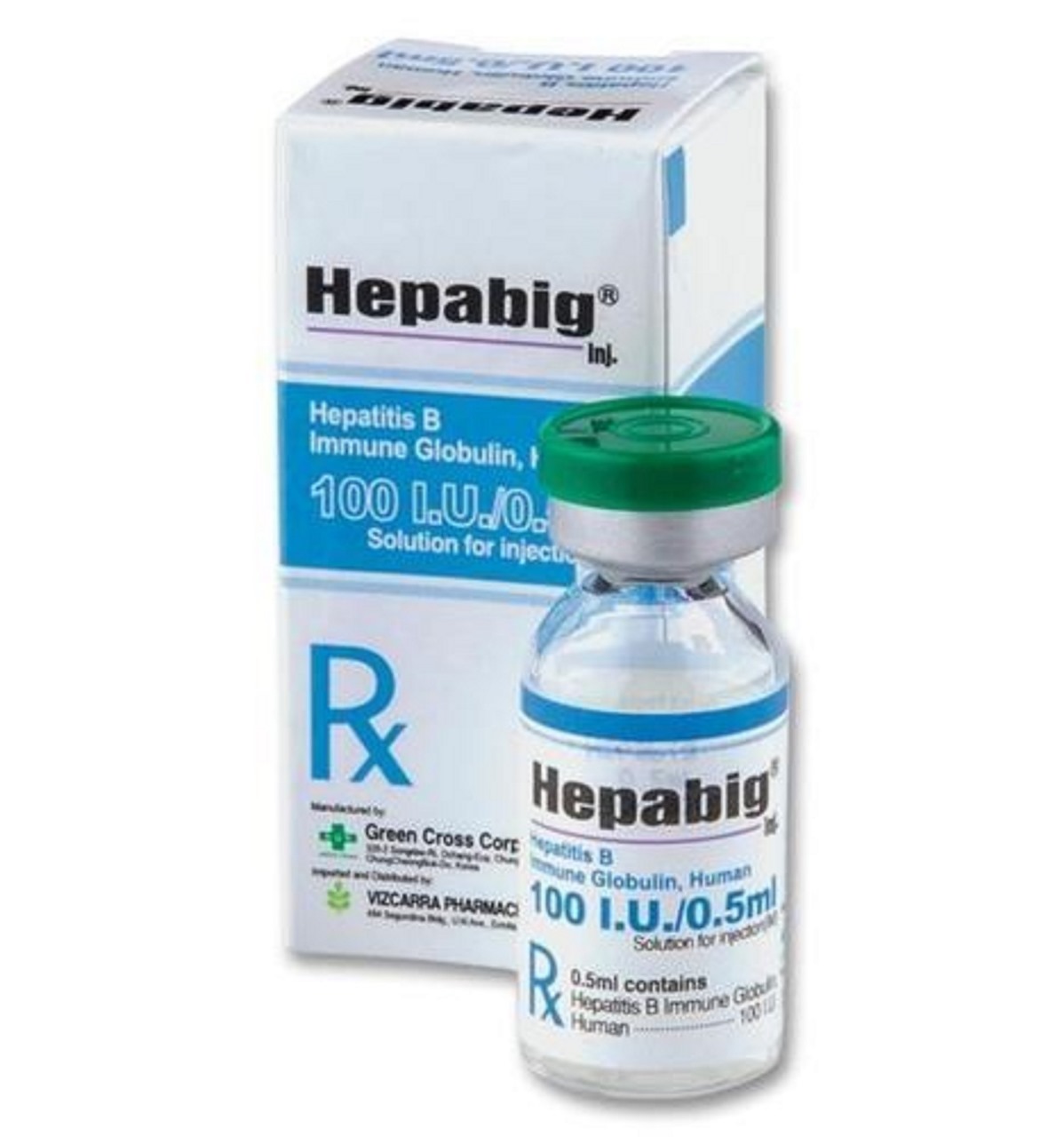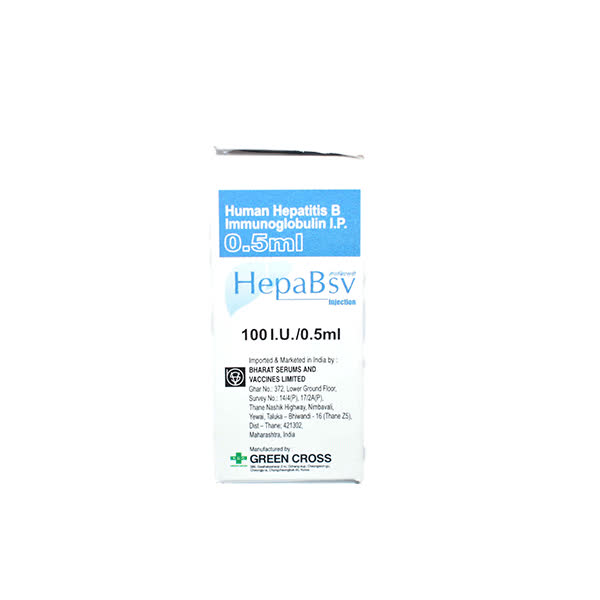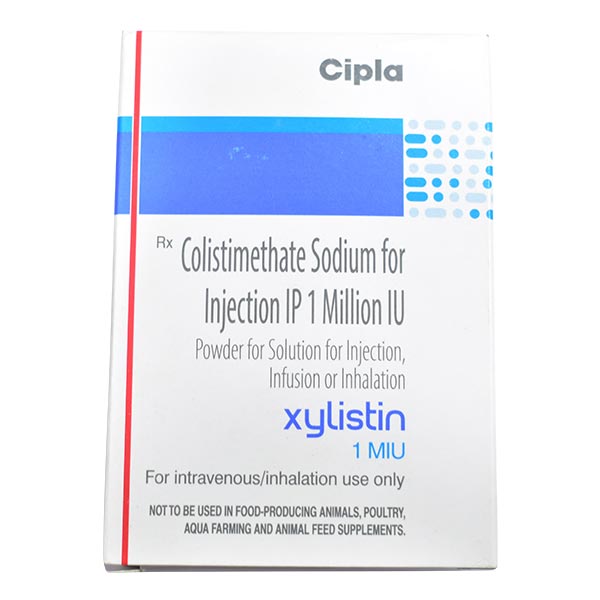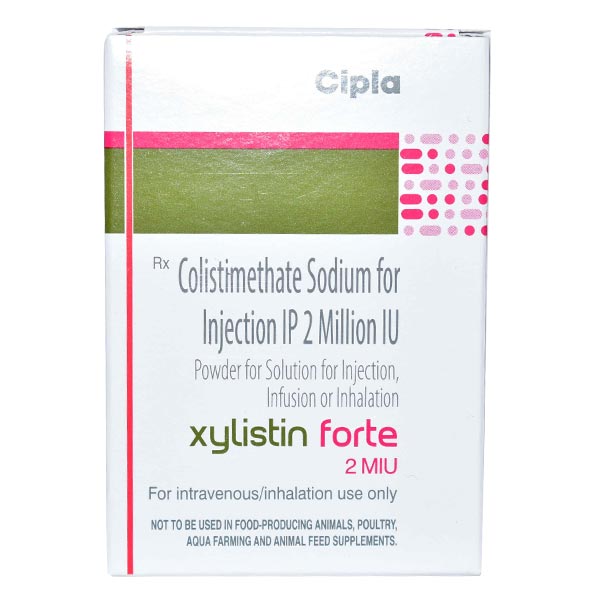General Medicine
Pipracan 4.5 Injection is a combination antibiotic medication containing Piperacillin (4 g) and Tazobactam (0.5 g). This formulation is used to treat a wide range of serious bacterial infections that may not respond to other antibiotics.
________________________________________
🔹 Common Uses
Pipracan 4.5 Injection is prescribed for:
• Hospital-acquired pneumonia (HAP) and ventilator-associated pneumonia (VAP)
• Urinary tract infections (UTIs)
• Intra-abdominal infections (e.g., peritonitis)
• Skin and soft tissue infections, including diabetic foot infections
• Gynecological infections, such as uterine infections
• Bone and joint infections
• Bloodstream infections (bacteremia)
It is also used for prophylactic treatment in surgical procedures to prevent infections.
________________________________________
🔹 How It Works
• Piperacillin is a broad-spectrum penicillin antibiotic that inhibits bacterial cell wall synthesis, leading to bacterial cell death.
• Tazobactam is a beta-lactamase inhibitor that protects piperacillin from degradation by beta-lactamase enzymes produced by certain bacteria, thereby enhancing its efficacy. This combination allows Pipracan 4.5 to target a wide array of bacteria, including those resistant to other antibiotics.
________________________________________
🔹 Administration
Pipracan 4.5 Injection is administered intravenously by a healthcare professional. The dosage and duration of treatment depend on the type and severity of the infection, as well as the patient's medical condition. Self-administration is not recommended.
________________________________________
🔹 Side Effects
Common side effects may include:
• Nausea or vomiting
• Diarrhea
• Rash or itching
• Pain, redness, or swelling at the injection site
Serious side effects are rare but can include allergic reactions, liver enzyme abnormalities, or blood disorders. Seek immediate medical attention if you experience symptoms like difficulty breathing, swelling of the face or throat, or unusual bruising or bleeding.
________________________________________
🔹 Precautions
Before using Pipracan 4.5 Injection, inform your doctor if you have: Allergies to penicillins or beta-lactam antibiotics
• Kidney or liver disease
• A history of gastrointestinal diseases, such as colitis
• Bleeding disorders
• Undergoing dialysisUse during pregnancy and breastfeeding should be discussed with your healthcare provider. The medication should only be used if the potential benefits justify the potential risks.
Send
Message
